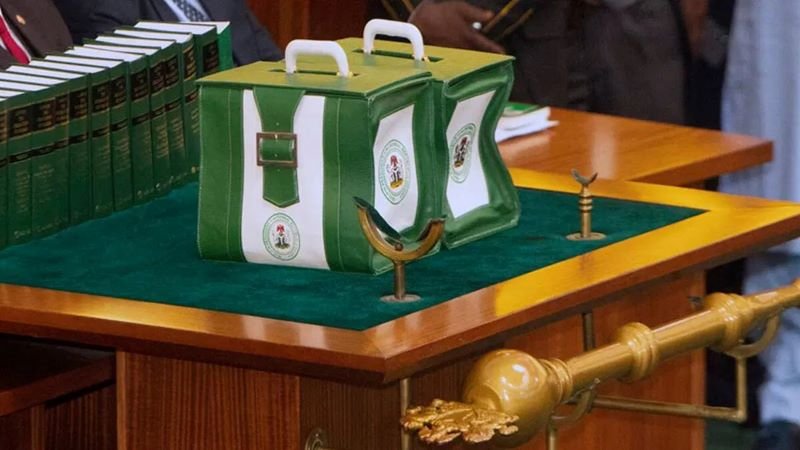THE Federal Government has announced plans to submit the 2026 Appropriation Bill to the National Assembly by September 2025, in what officials describe as a renewed effort to end the country’s long-standing tradition of late budget presentation.
This disclosure was contained in a 2026 Personnel Cost Budget Call Circular issued by the Budget Office of the Federation and signed by its Director-General, Mr. Tanimu Yakubu. The circular, dated July 7, 2025, was obtained from the agency’s official website by The PUNCH on Sunday.
News Point Nigeria reports that the directive was addressed to ministers, permanent secretaries, service chiefs, chief executives of parastatals, and other top government officials. It instructed them to begin preparations for the personnel component of their budget proposals for the 2026 fiscal year.
According to the circular, the 2026–2028 Medium-Term Expenditure Framework (MTEF) and Fiscal Strategy Paper (FSP) must be finalised by July 2025, in line with the Fiscal Responsibility Act (2007), to allow the budget to be transmitted to lawmakers by September.
“As you are aware, the 2026–2028 Medium-Term Expenditure Framework and Fiscal Strategy Paper should be concluded by July 2025 in line with the Fiscal Responsibility Act 2007 to facilitate the submission of the 2026 budget to the National Assembly by September 2025,” the circular stated.
The Budget Office laid out tougher measures to curb abuse of personnel budgets, warning ministries, departments, and agencies (MDAs) against inflating nominal rolls with ghost workers, contract staff, or unapproved promotions.
It emphasised that only legitimate federal employees would be captured in the personnel cost budget, stressing that any unauthorised salary payments would attract sanctions.
Among the new rules:
No anticipatory promotions: Only staff promotions already approved and in effect will be reflected.
Ban on consultants, corps members, and outsourced staff in payrolls: These categories are not considered permanent staff and must not feature in MDA budget templates.
Centralised NYSC allowances: Corps members’ stipends will be budgeted under the National Youth Service Corps, while host MDAs may only provide extra allowances from overheads.
Ceilings for medical interns and honorary consultants: Federal health institutions must strictly adhere to quotas set by professional councils.
Single employment record policy: Lecturers, consultants, and staff cannot appear on multiple payrolls.
The Budget Office further warned that inclusion of outsourced service providers on payrolls would be regarded as “willful fraudulent action” and reported to relevant authorities.
The circular also revealed that the government had mainstreamed a 1 per cent Employee’s Compensation Scheme contribution for the National Social Insurance Trust Fund into payroll templates, following a Federal Executive Council directive.
To strengthen fiscal discipline, the government will roll out a centralised Personnel Cost Monitoring Dashboard linked to the Integrated Payroll and Personnel Information System (IPPIS) and the Government Integrated Financial Management Information System (GIFMIS).
This tool, the circular explained, will enable MDAs to compare actual personnel expenditures against budget provisions in real time.
In addition, a Payroll Discrepancy Resolution Committee will meet monthly to address mismatches between MDA submissions and payroll outputs, while salary arrears requests will be processed within 30 working days under a new Service Level Agreement.
All MDAs must submit their 2026 personnel budget proposals—both hard and soft copies—by July 15, 2025, with every page initialed by the responsible minister or chief executive. A third-quarter personnel budget performance report is also due by September 30, 2025.
The Budget Office stressed that strict adherence to deadlines was necessary to ensure the timely passage of the budget.
The development comes amid growing fears that the 2025 budget may spill into 2026 due to stalled capital project implementation, procurement delays, and disruptions in the Bottom-Up Cash Planning Policy (BUCPP).
At a stakeholders’ engagement in Abuja, the Accountant-General of the Federation, Shamseldeen Ogunjimi, revealed that the government’s cash-planning portal had been shut down since May, preventing MDAs from uploading cash plans necessary for releasing funds.
He accused some MDAs of breaching the Public Procurement Act by awarding contracts simply because they were budgeted for, without ensuring cash availability.
“Without a warrant, no MDA is allowed to award a new contract or process any capital payments in the GIFMIS platform,” Ogunjimi warned.
While assuring that previously captured commitments would still be funded, he clarified that new contracts would only be processed once the portal reopens and fresh cash plans are uploaded.
With the September 2025 deadline now set, the coming months will test both the Budget Office’s resolve and the capacity of MDAs to deliver credible, fraud-free personnel proposals.








